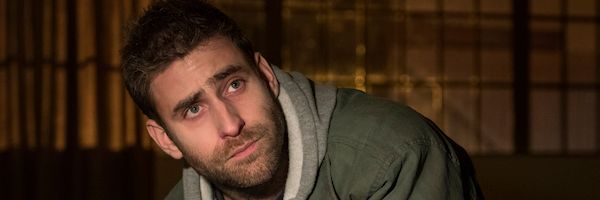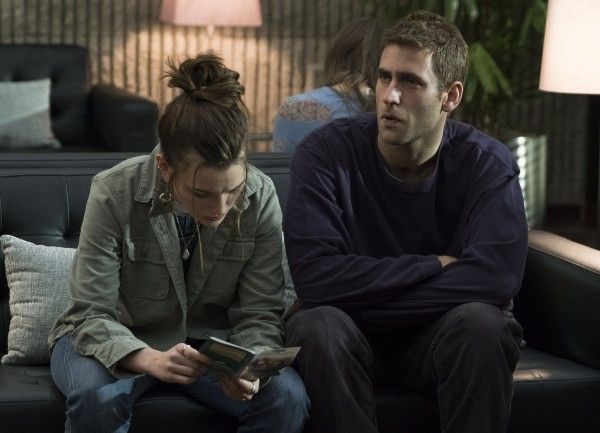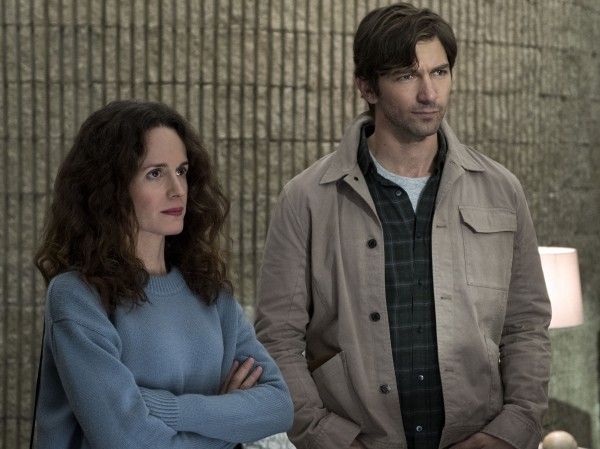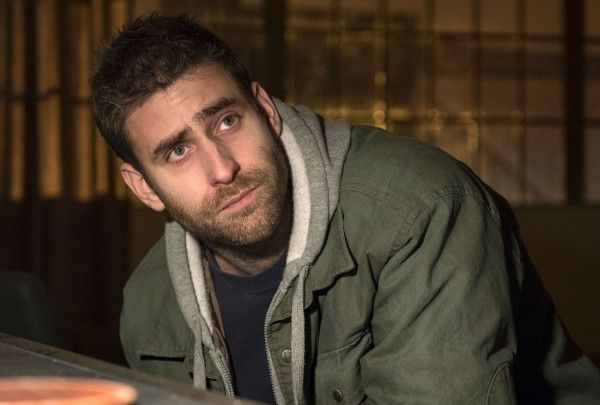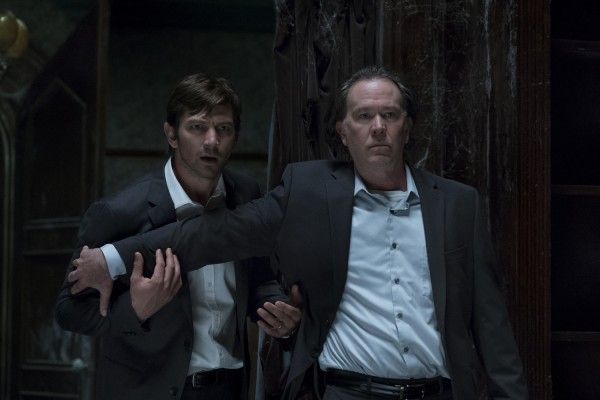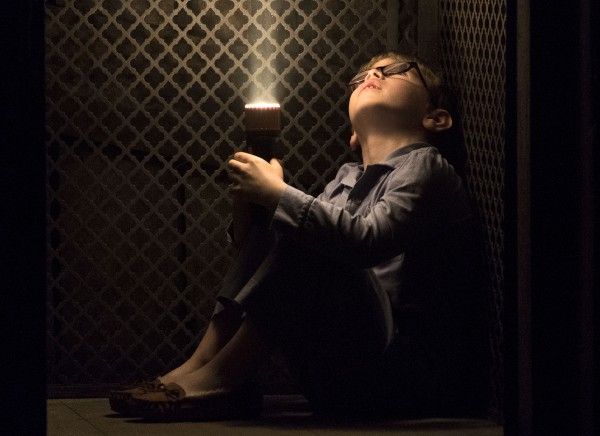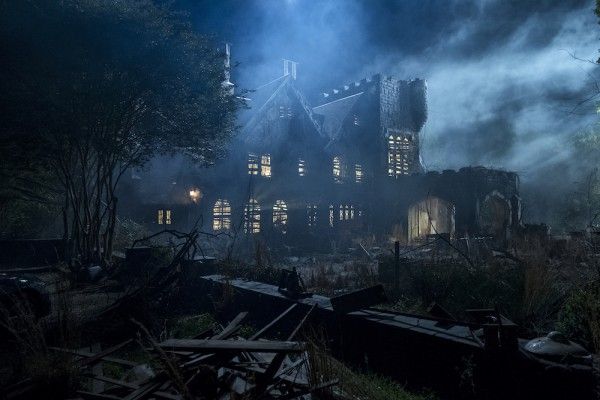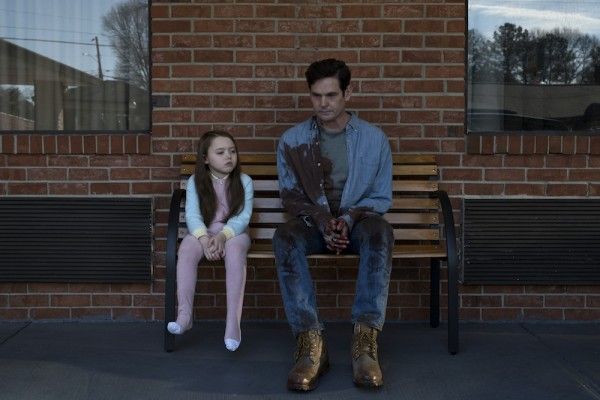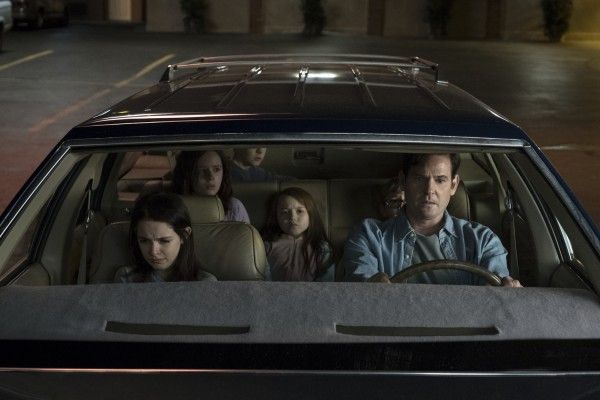From director Mike Flanagan, the 10-episode supernatural drama series The Haunting of Hill House (available to stream on Netflix) is a modern reimagining of the acclaimed Shirley Jackson novel of the same name. As the story weaves an unsettling tale that focuses on five siblings who grew up in the most famous haunted house in America, the audience gets to see how that experience affects them now as adults, when they’re reunited by the suicide of their youngest sister. That tragedy forces them to finally confront the ghosts of their past, but when it comes to Hill House, that could also mean some real ghosts are lurking in the shadows.
During this 1-on-1 phone interview with Collider, actor Oliver Jackson-Cohen (who plays youngest son and recovering addict, Luke Crain) talked about how much of the story he knew ahead of time, exploring childhood trauma wrapped in a supernatural mystery, the challenges of this nine-month shoot, working with this incredibly talented cast, the approach to the stand-out Episode 6 and doing takes that were over 20 minutes long, how this is a character that will stay with him, and the type of projects he looks for.
Collider: I’ve watched this entire season and I think this is one of the best and most effective shows that I’ve watched in quite some time.
OLIVER JACKSON-COHEN: Oh, my god, thank you so much. I think all of us are so enamored by what [Mike Flanagan] has created here, so it’s lovely of you to say. It’s a really special show. When you say to someone, “Netflix made a horror show called The Haunting of Hill House,” everyone immediately thinks what I originally thought, that it’s just gonna be some cheap scares. It’s been so nice to see the response that people feel it’s so much more than that. That’s really nice to hear, so thank you.
When this came your way, how much of the series were you able to read, ahead of time? What exactly did you know about the story that you would be telling and how your character would fit into everything?
JACKSON-COHEN: Quite a lot. When I signed on, I was given the first four episodes, and then Mike got on the phone with me and explained what was going to happen, throughout the season. So, by the time we got into pre-production, I think there were seven or eight episodes that had been written. We all knew that it was ultimately going to end a different way. That’s what changed, as he was writing it. We knew that we would all end up back at the house, and we knew what our Red Room things would be, which was amazing. The way that Mike tells a story to you, in real life, he’s just such an incredible storyteller. He told me the big twist of all of the Red Room stuff and I just sat there with goosebumps.
So, I knew quite a lot, going into it. We all did. That was quite a luxury. We weren’t all signing onto a pilot episode, and then just waiting for scripts to come in. Mike cared an awful lot about his characters and the character arcs. He accommodates actors very, very well, in that respect. What’s amazing about the show is that, in the first five episodes, you jump backwards quite a bit and you have flashbacks to us as kids. But then, from Episode 6 onwards, all of that present-day stuff happens, in the space of 48 or 72 hours. It’s all centered around the funeral. It’s pre-funeral, day of the funeral, or the day after funeral.
It was quite hard going, at times, for everyone, just because it was a nine-month shoot and we only finished two or three months ago. It was quite a lot to keep that amount of grief going for so long. There was a period of time, from January until April, where every single day, we were either going to a funeral, or it was the day of the funeral, or it was the day before the funeral. Every day, we were waking up and going, “It would just be nice to go to work and do something happy.” It was fun, but it would have been so nice to go in and tell a joke. I think I had one day, out of the whole nine months, that was a happy day, which was Nell’s dream sequence in the house, in Episode 5, where we all get to be happy versions of ourselves. That was the one day of filming where we were bouncing around the set, talking to people. It was great. But that was one day out of the nine months, so it was heavy going.
How was it to work with this ensemble of actors and to get to do scenes where you were all together?
JACKSON-COHEN: It was amazing. Every single one of them brings such an amazing thing to the table. That’s what was so nice about the way that Mike casts his movies and this show, particularly. He brings together an incredible troupe of people. Something what’s on the page that will be interesting, but when it’s given to one of the actors and and they put it on it’s feet, it becomes a whole new level of something entirely different. Mike also spoke an awful lot about keeping everyone separate until Episode 6, which is that stand-alone episode that was done in three shots, in total. He had this idea that, once you get half-way through the season, the “bottle” episode would feel as if it’s one take. It was all done in steadi-cam, and the camera was constantly going round and round the actors. You get the sense, as an audience, that everyone is finally together, in present day. I think he achieved that really well. It was so bold and brave of him, and brave of Netflix, Amblin and Paramount, to allow him to do that. I don’t know, if the show was elsewhere, whether or not a filmmaker would be allowed to shoot an episode like that. We had two and a half weeks’ rehearsal. We had to shut down while we did rehearsals, and then the whole space was rigged with microphones, and it was done like a play. It’s been done before, with other TV shows that have been on longer, but for a first season of a show to be allowed to do that, half-way through the season, was such an amazing thing to be a part of.
When I spoke to Mike Flanagan about the show, he told me that he didn’t know if he would actually be able to pull off what he wanted to do, until he did that episode.
JACKSON-COHEN: There was this insane relief that happened. It’s basically three or four cuts, throughout the episode, and one of the takes is 23 minutes long. For the part where Steven (Michiel Huisman) and Shirley (Elizabeth Reaser) and everyone starts to go for each other, we had this camera dolly and, because of the carpets on the stage, and because we’d been rehearsing for so long, we’d done two takes and Mike came in when we were about to do another one and said, “Guys, this is the one.” He said it so calmly, but he looked so terrified. It was such a weird thing to say. It was like, “Great, no fuckin’ pressure there.” So, we shot it, and then they called “Cut!” And then, they twisted the dolly to move it and the mechanism inside broke. Mike had been told that the dolly would only stand up for another 25 minutes, just before we did the take, so he knew that was the last take we would be able to get. The dolly was from L.A., so they would have had to fly one in and that would hold us up. It was amazing, the relief when we finished that episode. The great thing was that he immediately edited it all together, so people could watch it, and everyone got a sense of what we were a part of. It was quite a special moment. He does a great job of acting like everything is fine, but it was such a gamble that he was taking on that episode, and it 100% worked.
Could you have ever imagined that you would be in a project where you’d have both Timothy Hutton and Henry Thomas playing your father?
JACKSON-COHEN: That’s a dream come true, right? They’re both such excellent actors. Because we were shooting for so long, we all became so close. To be able to work with not just Henry and Tim, but Elizabeth [Reaser] and Carla [Gugino], and all of these amazing actors, I felt very fortunate.
With Dracula, Emerald City, and now The Haunting of Hill House, you’ve done a fair bit of genre work, in the last few years, but those projects and those characters are so vastly different from each other. For a long time, it seemed like actors went out of their way to avoid getting trapped in genre, but there’s some really remarkable storytelling in genre, these days. Are you surprised at how varied those projects have been, and what you’ve gotten to do with each of those characters?
JACKSON-COHEN: Oh, my god, yeah. As an actor, you want to push yourselves and explore different things. To me, it’s never really been a question of what the actual project is. It’s always been about the character, itself, because, at the end of the day, you have to entertain yourself, as an actor, and you have to push yourself. I’ve never made choices based on, “I want to do this type of show,” or “I want to do this type of movie.” It’s always been character-driven. It’s just so nice to be able to explore as much as you can, as an actor, but I do feel that Luke Crain will probably stay with me, for a very, very long time. He’s a very, very special kind of person to be able to play.
It’s incredible how you can take a show that is labeled as a horror show, but also explore addiction and mental illness, and all of these things that you probably couldn’t explore, if you were just doing a straight family drama.
JACKSON-COHEN: What’s so interesting is that Mike has basically written a show that’s about childhood trauma. The show speaks to so many people because you can swap out the ghosts for sexual abuse, or any of those things, and you’re still left with the same dynamics and the same aftermath that you have with the Crain family. What’s been so interesting about doing press, talking about the show, and meeting all of these journalists and reporters is that it seems as though the characters strike a chord with individual people. Mike is able to use this story and have it covered in the safety net of, “It’s ghosts,” or “It’s a haunted house,” as a metaphor for what he’s actually talking about, which is childhood trauma and how we ultimately can never run away from it. Our childhood follow us, throughout our lives, unless we face it, and that’s such a universal message, which is why being a part of the project, in the first place, was such an exciting idea.
That’s why I think the work that you do with Luke is so remarkable. He’s a character that you could easily lose sympathy for because he just can’t get his shit together, but because you see what happened to him as a child and you get that story at the same time that we’re seeing him now, you never lose that sympathy for him and you keep rooting for him to just get his life together.
JACKSON-COHEN: I think that Mike is very clever. I remember saying to him, very early on, that we’ve all seen depictions of addicts. We see it so much now. We see it in movies and on TV, all the time. And with Luke, he’s seen as an addict to the rest of his family, and maybe to the audience, and he’s seen as a nuisance, but it was very important to Mike to take the character and show a side of addicts that isn’t necessarily seen. No one chooses to pick up a needle. They are pushed to that point. Mike has cleverly depicted that, and shown that these people are suffering so deeply. It’s important to have empathy and sympathy, and not to rule them out or make a judgment on someone that is struggling so deeply in life. Hopefully, that’s what Mike has managed to do with this. Addicts are seen as these problems in society, and people have to just stop for a second and see what’s actually going on there. To me, Luke is just heartbreaking.
After you do something this special and you talk about how this is a character that’s going to stick with you, where do you go next? How do you find the next project?
JACKSON-COHEN: Well, you drink an awful lot. That’s the first step. I don’t know. Maybe we’ll be back at Hill House. Maybe we’ll go to a different house. I don’t really know. It probably makes me sound a bit wanky, but as an actor, you always want to be pushing yourself and exploring new things. I don’t really know where to go next. Time will tell. To breeze into work and not have to drum up [heavy] stuff would be heaven, right now. We could do The Haunting of Hill House: The Musical. Now, that would be fun. That would be the dream.
The Haunting of Hill House is available to stream at Netflix.

